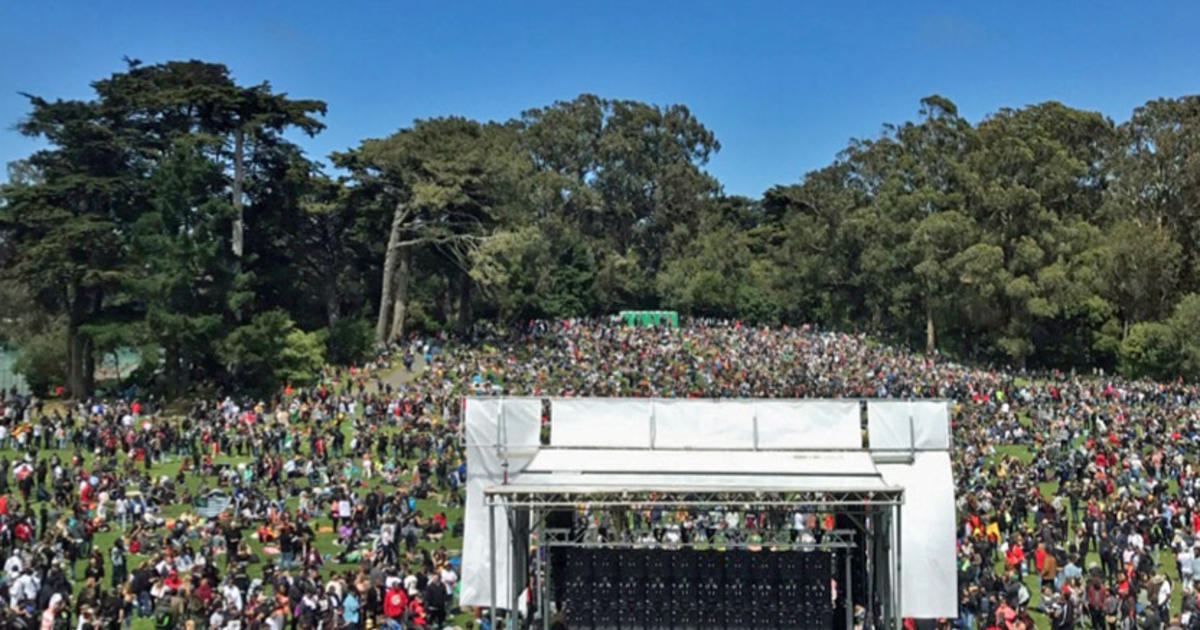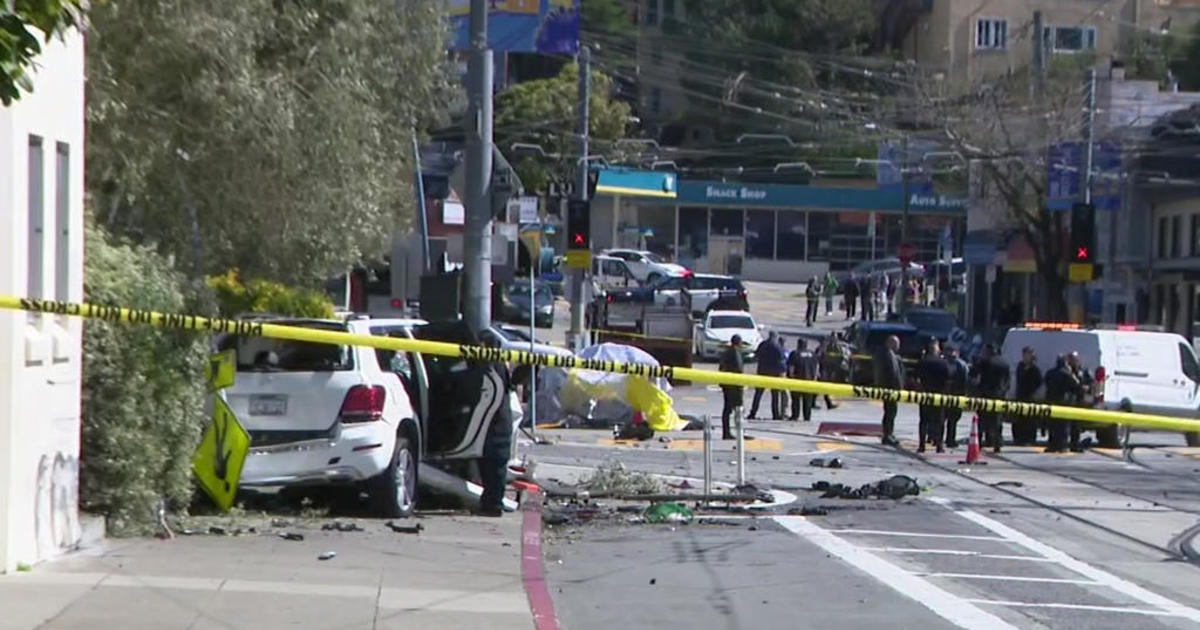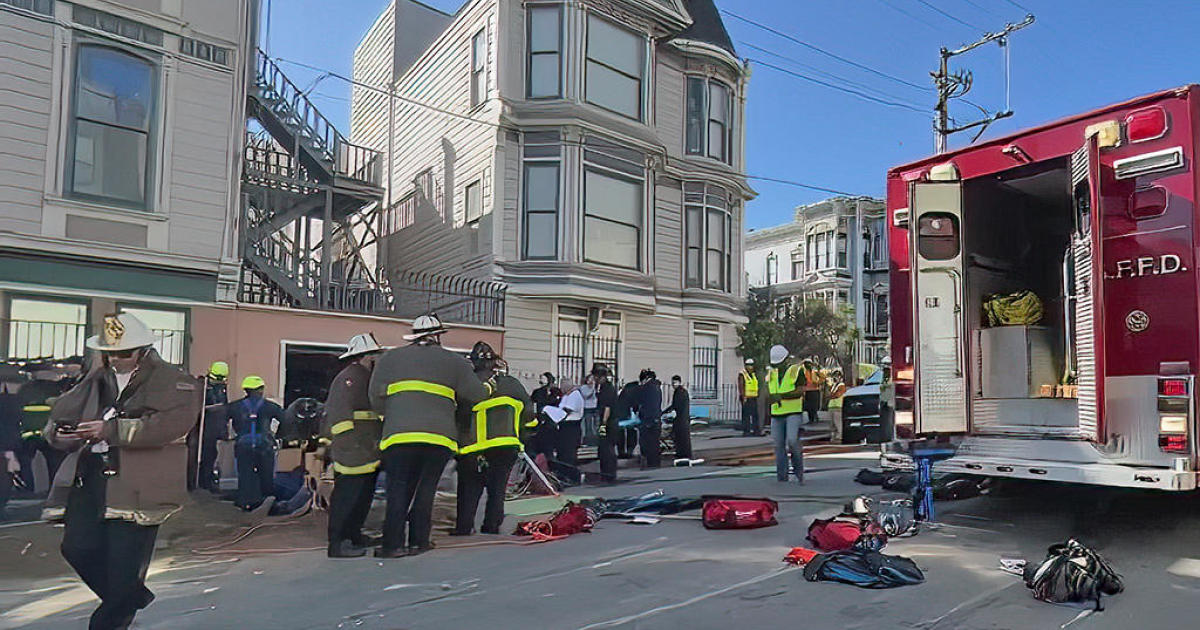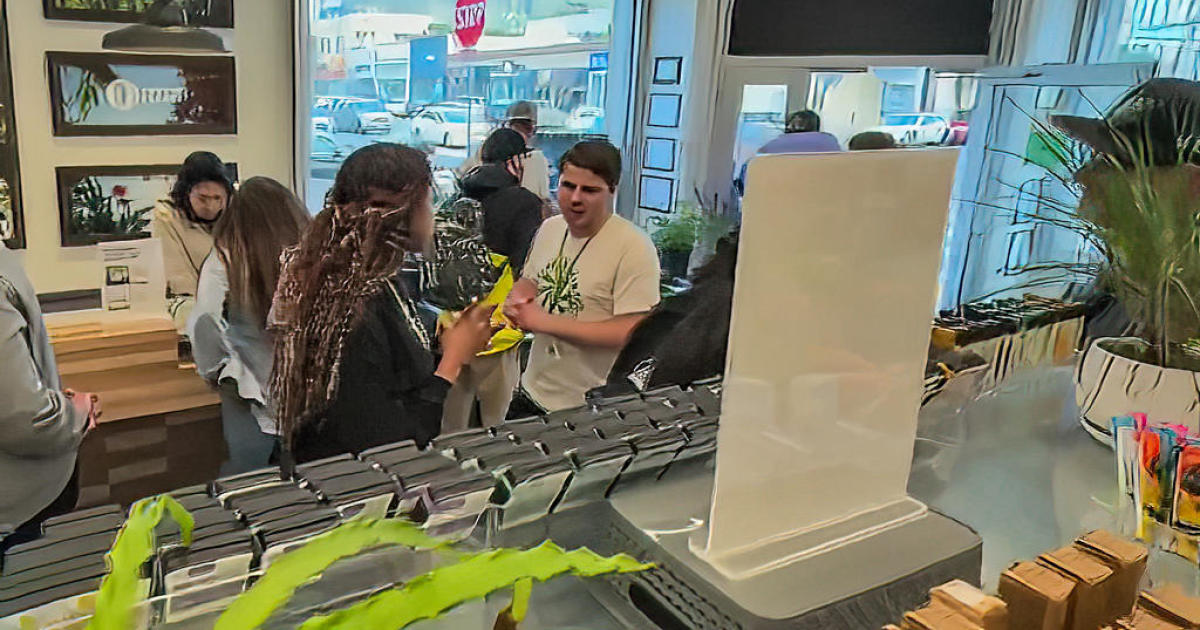Palo Alto Veteran Offers New Details On North Korean Captivity
SAN FRANCISCO (AP) — The 85-year-old U.S. veteran from Palo Alto who was detained for weeks by North Korea said Monday that the videotaped confession in which he apologized for killing North Koreans during the war was given involuntarily and under duress.
In a written statement issued Monday, Merrill Newman, said he tried to show that the words he read on the recording were not his own by emphasizing the apology's awkward phrasing and poor English grammar.
"Anyone who has read the text of it or who has seen the video of me reading it knows that the words were not mine and were not delivered voluntarily," Newman said. "Anyone who knows me knows that I could not have done the things they had me 'confess' to."
The former Army lieutenant said that while the North Koreans treated him well during his detention at a Pyongyang hotel, an interrogator told him repeatedly that if he did not apologize for his alleged crimes during the Korean War and during his visit to the communist nation, he would be sentenced to 15 years in jail for espionage.
"Under these circumstances, I read the document with the language they insisted on because it seemed to be the only way I might get home," he said.
Newman, who was deported Friday and returned home to California on Saturday, was detained in late October at the end of a 10-day trip to North Korea. His visit that came six decades after he oversaw a group of South Korean wartime guerrillas during the 1950-53 war. He was scheduled to visit South Korea following his North Korea trip to meet some of the former fighters he had helped train.
Before he arrived in North Korea, Newman said he requested and was given permission to visit the region where he spent his war years advising the clandestine Kuwol fighters. Once he got to Pyongyang, "I innocently asked my North Korean guides whether some of those who fought in the war in the Mt. Kuwol area might still be alive, and expressed an interest in possibly meeting them if they were.
"The North Koreans seem to have misinterpreted my curiosity as something more sinister," Newman said in his statement. "It is now clear to me the North Koreans still feel much more anger about the war than I realized. With the benefit of hindsight I should have been more sensitive to that."
Full text of statement:
Over the past two days, I've been able to reunite with my wonderful family, rest, and try to recover from the difficult ordeal that began when I was prevented from leaving North Korea on October 26th. I can't begin to tell you how good it is to be home, to be free, and to begin to resume my normal home life.
Let me repeat my thanks to the U.S. State Department for the amazing job they did in getting me out of North Korea and bringing me home safely. I want to thank Vice President Biden, who called me in Beijing to wish me well and even offered to give me a lift back to the United States on his plane. Thanks also to the Swedish Embassy in Pyongyang for their great work, especially their visit to me and their help in ensuring that I had the medicine I needed.
Let me also express deep appreciation to friends, family, members of the First Congregational Church, wonderful people of faith and from all walks of life, residents and staff of our home at Channing House, and Members of Congress for their prayers, vigils, hard work, and moral support on my behalf. I want to single out Evans Revere for his extraordinary help.
It wasn't until I got home on Saturday that I realized what a story I had become in the press here. During my detention I had no access to any outside news, and wondered whether anyone was even aware of my situation. I am sorry I caused so many people so much heartache back home.
Looking at the television and newspaper reports, I've seen a lot of speculation about why I was detained. I've given considerable thought to this and have come to the conclusion that I just didn't understand that, for the North Korean regime, the Korean War isn't over and that even innocent remarks about the war can cause big problems if you are a foreigner.
I'm a Korean War veteran and I'm proud of my military service, when I helped train Korean partisans. The North Koreans still harbor resentment about those partisans from the Mt. Kuwol area and what other anti-Communist guerrillas did in North Korea before and during the war.
The shooting stopped sixty years ago, and the North Koreans have allowed other American veterans of the war to visit. Moreover, I did not hide my own military service from the tour company that organized my trip. Therefore, I did not think this history would be a problem. Indeed, in my application for a tourist visa, I specifically requested permission to visit the Mt. Kuwol area. That request was approved and was on the official itinerary when I arrived, although after I got to Pyongyang, I was told that the bridge had been washed out by a flood and it would not be possible to do so.
Before they told me this, I innocently asked my North Korean guides whether some of those who fought in the war in the Mt. Kuwol area might still be alive, and expressed an interest in possibly meeting them if they were. The North Koreans seem to have misinterpreted my curiosity as something more sinister. It is now clear to me the North Koreans still feel much more anger about the war than I realized. With the benefit of hindsight I should have been more sensitive to that.
I've also seen a lot of reports about the "confession" I made in North Korea. Anyone who has read the text of it or who has seen the video of me reading it knows that the words were not mine and were not delivered voluntarily. Anyone who knows me knows that I could not have done the things they had me "confess" to. To demonstrate that I was reading the document under some duress, I did my best to read the "confession" in a way that emphasized the bad grammar and strange language that the North Koreans had crafted for me to say. I hope that came across to all who saw the video.
Getting the "confession" and my "apology" were important to the North Koreans. Although the North Koreans treated me well during my detention (they looked after my health and fed me well), I was constantly under guard in my hotel and my interrogator made it clear that if I did not cooperate I could be sentenced to jail for espionage for 15 years. In fact, the North Korean interrogator repeatedly made the following statement to me: "If you do not tell the full truth, in detail, and apologize fully, you will not be able to return to your home country. If you do tell the full truth, in detail, and apologize fully, you will be able to return to your home country -- someday." Under these circumstances, I read the document with the language they insisted on because it seemed to be the only way I might get home.
In the coming days, as I recover my strength I plan to share more details about my experience in North Korea. I know there is a lot of interest in this and I'll do my best to answer as many questions as I can. We also ask that you not forget that another American, Kenneth Bae, is being held in the DPRK and we hope that he, too, will be allowed to rejoin his family. For now, let me finish by saying again how great it is to be back home, safe, and with my loved ones.
(© Copyright 2013 The Associated Press. All Rights Reserved. This material may not be published, broadcast, rewritten or redistributed.)



